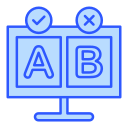
Udacity Nanodegrees vs Other Platforms: Choose What Moves You Forward
Chosen theme: Udacity Nanodegrees Compared to Other Platforms. Explore how Nanodegrees stack up against alternatives, with real stories, practical takeaways, and prompts to help you pick the path that fits your goals. Subscribe and share your learning journey.
Learning Design: How Udacity Compares to Other Platforms
Cohesive Programs vs Course Catalogs
Udacity’s Nanodegrees are curated programs built around job-ready skills, linking lessons directly to projects and career outcomes. Many platforms offer vast catalogs, which provide breadth, but can leave learners stitching together pathways without a clear finish line.
Depth and Scaffolding That Builds Momentum
Nanodegrees emphasize a progressive build: each module prepares you for the next project, reinforcing mastery. By contrast, some marketplaces favor standalone courses, great for sampling topics, but less effective when you need a structured, end-to-end transformation.
Real-World Rubrics vs Quiz-Heavy Assessment
Udacity leans on detailed project rubrics tied to industry expectations, while many platforms rely more heavily on quizzes. Quizzes confirm recall; rubric-driven projects demonstrate you can actually apply skills to practical, messy, real-world challenges.

Projects and Portfolios: Turning Learning into Proof
Udacity projects are reviewed by humans with targeted feedback, iteration, and acceptance criteria. Many other platforms rely on automated checks, which are fast and scalable, but may miss nuanced code quality, design decisions, and communication clarity employers value.
Projects and Portfolios: Turning Learning into Proof
A data analyst shared how their Nanodegree capstone—forecasting bike-sharing demand—became their portfolio centerpiece. Recruiters engaged not because of a certificate, but because the code, write-up, and visuals told a persuasive, business-aware story of measurable impact.


Mentorship, Feedback, and Support: Human Help When It Matters
Udacity’s review cycles turn projects into learning conversations. Iteration builds craftsmanship. Other platforms’ discussion forums can be helpful, yet response quality and timing vary, which affects how quickly you unblock and how deeply you refine your work.
Mentorship, Feedback, and Support: Human Help When It Matters
Resume reviews, GitHub polishing, LinkedIn feedback, and interview prep help translate projects into outcomes. On many platforms, learners self-direct this step, which works for some, but others benefit from structured templates, checklists, and targeted, human critique.
Industry Alignment: Learning What Employers Actually Need
Udacity collaborates with tech companies to shape project briefs and rubrics that mirror real job tasks. Other platforms sometimes license university syllabi or instructor-designed content, which can be excellent, yet not always laser-aligned with current hiring needs.
Industry Alignment: Learning What Employers Actually Need
Nanodegrees aim to update content for shifting stacks, from cloud pipelines to LLM tooling. Many platforms also refresh, but cadence varies. When comparing, check update logs, dependency versions, and whether projects reflect today’s tools rather than last year’s screenshots.


Pacing, Commitment, and Learner Experience
Self-Paced, Not Self-Lost
Udacity’s milestone-driven progress, targeted deadlines, and project acceptance criteria offer direction without rigid cohorts. Other platforms’ complete flexibility is freeing, but can increase drift. Ask yourself: do you want checkpoints, or absolute autonomy with fewer anchors?
Microlearning vs Deep Work
Short lessons fit busy schedules everywhere. The difference shows up in synthesis: Nanodegrees require integrating concepts in capstones. If you prefer bite-sized wins only, a marketplace course may suffice; for applied mastery, a project arc can be decisive.
Design Your Weekly Ritual
Choose two focus blocks for deep work and one for feedback incorporation. Share your plan in the comments, then subscribe for accountability prompts and study templates tailored to Nanodegree-style project cadences.

Recognition, Signaling, and Real-World Outcomes
Udacity puts projects front and center—repositories, documentation, and demos that employers can review. Many platforms offer certificates verifying course completion. Strong signals combine both: credible validation plus tangible artifacts that reveal judgment, rigor, and problem-solving.
